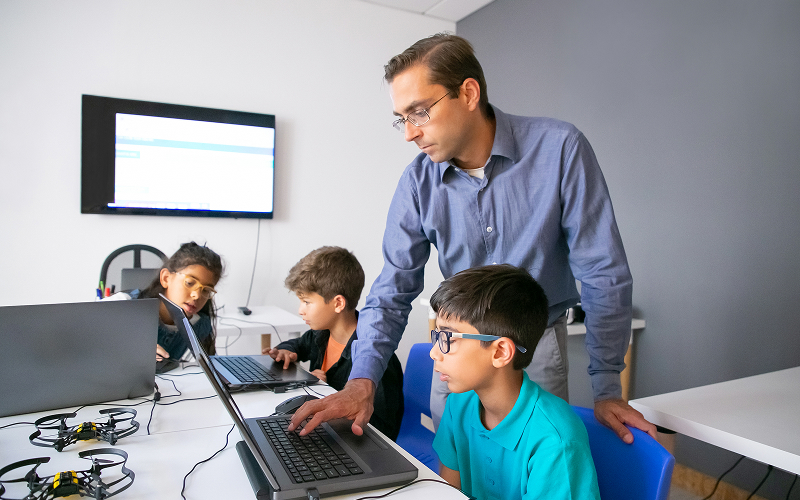Education is being redefined by the steady rise of digital tools and innovative services. Classrooms are no longer limited to textbooks and chalkboards. With the integration of education technology solutions, teachers and students have access to resources that transform the way lessons are delivered and absorbed. These advancements create an environment where learning is more flexible, engaging, and future-ready.
Expanding Access Through Online Learning Platforms
One of the most impactful developments in education technology services is the use of online learning platforms. These platforms extend the classroom beyond physical walls, giving students access to lectures, resources, and assignments at any time. Teachers benefit by sharing materials efficiently and creating opportunities for interactive discussions in virtual spaces. This flexibility ensures that education is not restricted by geography or rigid schedules, supporting a more adaptable approach to learning.
Encouraging Collaboration Through Interactive Tools
Collaboration is central to building skills that prepare students for higher education and future careers. Technology-driven services support teamwork by enabling real-time sharing of documents, group projects, and live feedback. Whether through interactive classroom software or collaborative online tools, these services encourage students to work together on solving problems and exchanging ideas. Teachers, in turn, can monitor progress and provide guidance throughout the process.
Supporting Teachers with Data-Driven Insights
Education technology solutions are not only designed for students. Teachers also benefit from data-driven insights generated by these tools. With access to information on student participation, performance, and progress, educators can make informed decisions about lesson planning and intervention strategies. This level of feedback allows teachers to refine their methods, ensuring that lessons are meeting the learning needs of their students more effectively.
Enhancing Lessons with Digital Whiteboards
A digital whiteboard for classroom use is quickly becoming a standard feature in modern schools. Unlike traditional boards, digital whiteboards allow teachers to present lessons interactively, incorporating visuals, videos, and live annotations. Students engage more actively when lessons are presented in a format that combines text with multimedia. Furthermore, teachers can save and share content from digital whiteboards, enabling students to review lessons outside classroom hours. This feature reinforces learning and bridges gaps in understanding.
Building Inclusive Learning Environments
Accessibility is a key advantage of education technology services. Students with different learning needs can benefit from tools that adapt lessons into varied formats, such as audio, visual, or interactive exercises. Recorded lectures, captioned videos, and screen-reading features help ensure that every student can access and engage with the material. By promoting inclusivity, schools create a supportive environment where each learner has an equal chance to thrive.
Preparing Students for the Digital Era
Classrooms equipped with modern technology are not only addressing current educational needs but also preparing students for a digital future. Exposure to tools such as online platforms, digital whiteboards, and interactive software helps learners develop technological literacy. These skills will be essential as they transition to higher education and eventually enter professional environments that rely heavily on digital communication and collaboration.
Learn More: How EdTech Solutions Shape the Future of Learning
Enabling Lifelong Learning Opportunities
Education does not end with graduation. Technology has made lifelong learning more accessible, enabling individuals to take up courses, certifications, and skills training at any stage of life. This is particularly relevant in industries where continuous learning is necessary to keep up with evolving demands. Education technology services bridge this gap by providing flexible and scalable solutions for learners across all age groups.
For more information about education technology, contact Media Architects today.















